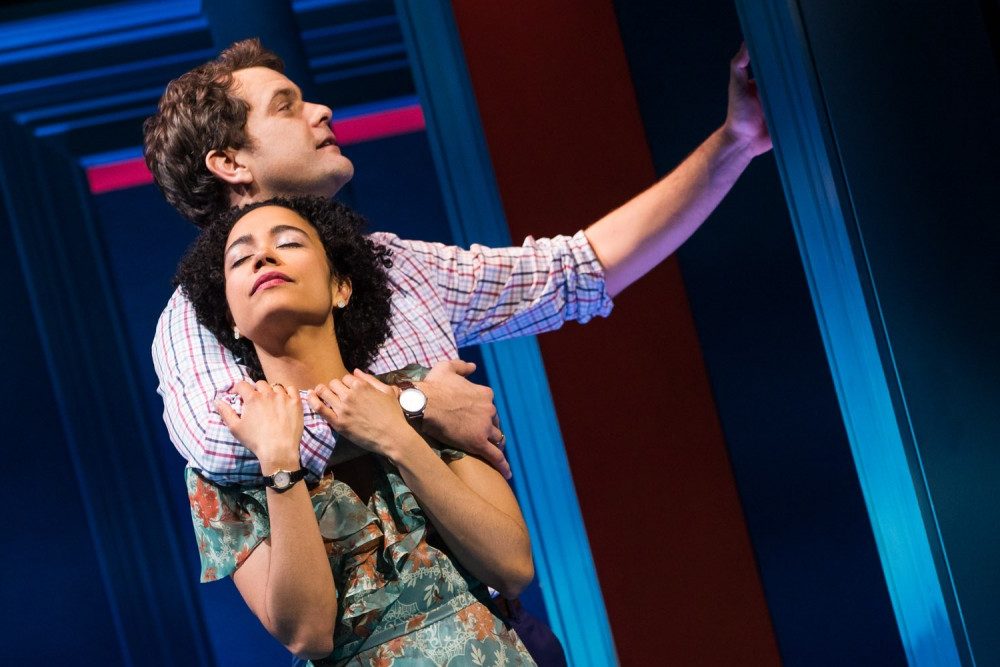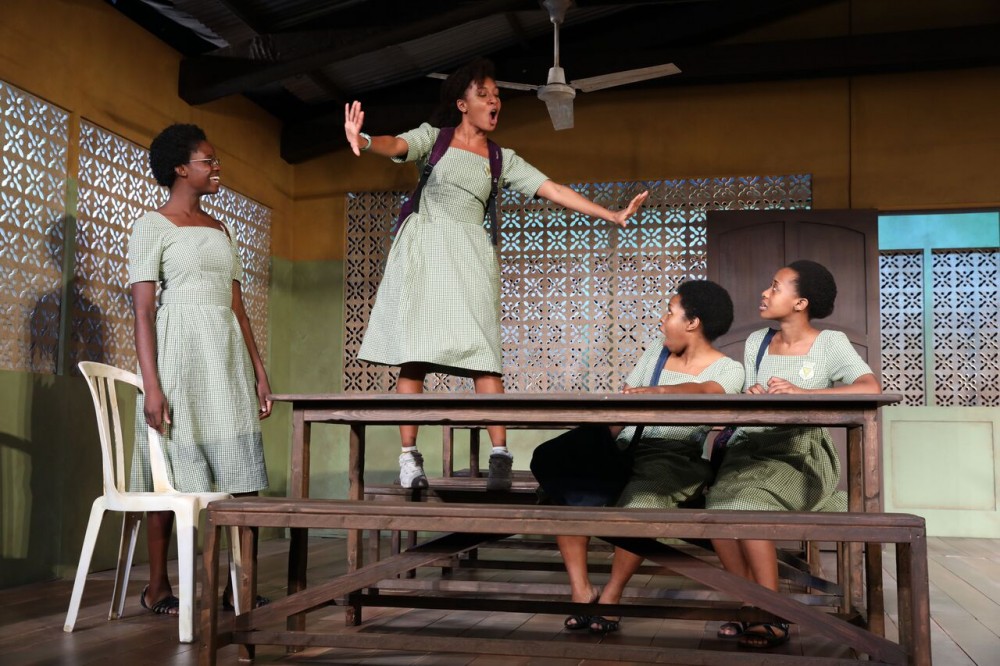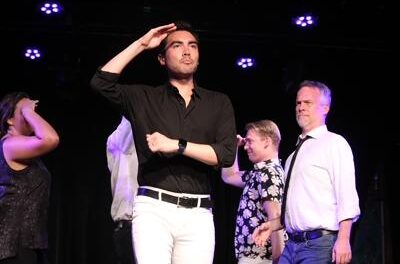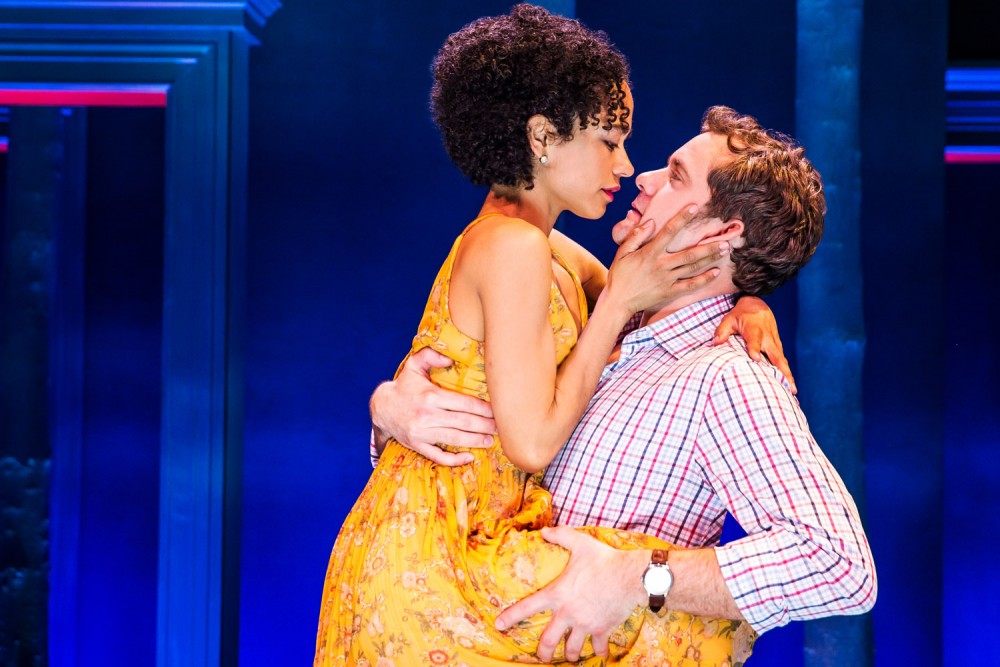
Lauren Ridloff, Joshua Jackson
by JK Clarke
One of the drawbacks of theater or literature that deals with contemporaneously specific issues is that they run the risk of losing their relevance over time. Works that endure tend to also encompass universal, timeless themes as well. Such is the case with Mark Medoff’s sharp and incisive 1979 play, Children of a Lesser God, which was one of the first major literary works to confront head-on the intersection of the worlds of the hearing and the hearing impaired. Medoff’s piece emerged as an impactful and unique statement to a world which historically and systematically discriminated against various communities based on physical impairment. So much so that it won the 1980 Tonys for Best Actor, Director and Play. While the immediacy of the issues therein has faded mildly, the play’s first Broadway revival—smartly directed by Kenny Leon and presently in an open run at Studio 54—remains a moving and provocative theatrical powerhouse.
Children of a Lesser God’s storyline revolves around a romantic relationship that develops between James Leeds (Joshua Jackson), a speech instructor in a community for deaf students (that is prison-like in its restriction of its students’ mobility and exposure to the external world), and his 25-year-old, combative and righteous pupil Sarah (Lauren Ridloff). While other students enthusiastically and strenuously learn to develop speech that can be understood by hearing people, Sarah totally resists, communicating solely through American Sign Language (ASL). Having proved a challenge to other instructors who ultimately gave up on her, Sarah finds Mr. Leeds’ persistence (and dashing good looks, no doubt) intriguing. Love blossoms.
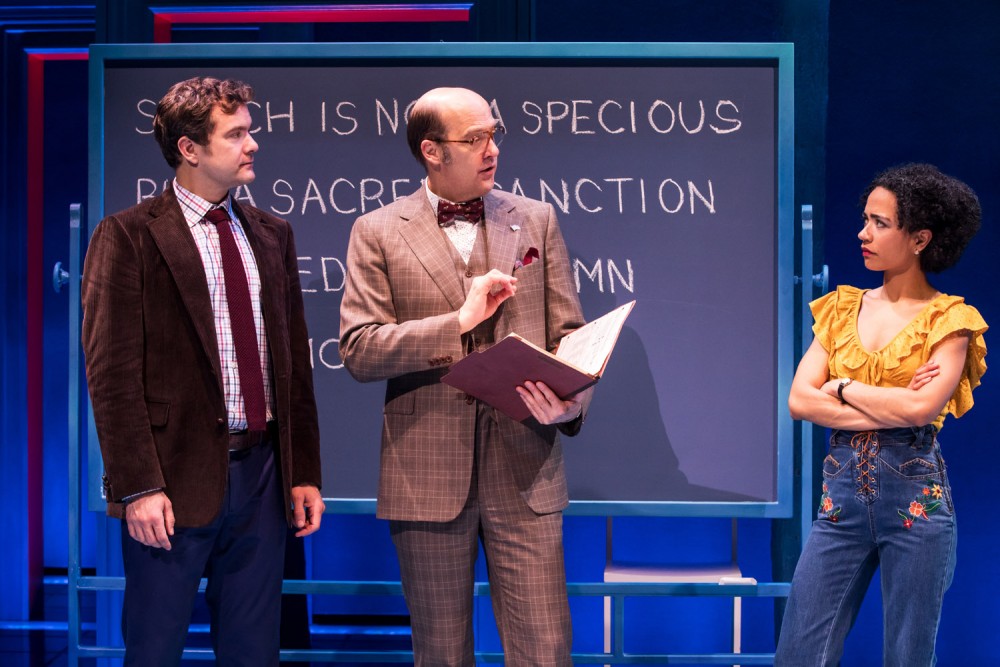

Joshua Jackson, Anthony Edwards, Lauren Ridloff
Meanwhile another student, Orin (the energetic John McGinty), whose speech is nearly indistinguishable from a hearing person’s, has engaged an attorney to sue the school for the right to equal treatment (in hiring practices, primarily).
Sarah opposes the idea that the only serviceable mode of communication amongst humans is speech, and that those who wish to communicate with her should learn sign language. While there is some logic to her argument, she creates an almost insurmountable wall between herself and James, who has become her husband, as well as potentially between the deaf and hearing community. While Sarah’s resistance has its roots in traumatic episodes in her life, the larger point she is trying to make ultimately serves to help the hearing (specifically we, the audience) better understand what it means deaf.
This revival’s strength is largely rooted in Medoff’s sparkling (though sometimes expository) dialog along with several stunning performances. Most notable is Broadway newcomer Lauren Ridloff (who bears more than a passing resemblance to Phyllis Frelich who originated the role), who speaks virtually no words throughout, but signs so artfully and dramatically that her communiqués are often cutting to even those who don’t know the language. Supertitles and signers during the performance aid those who can’t hear, but her signing is verbalized by the actor (usually Jackson) she’s communicating with. Ridloff is so beautiful and charming that even when she’s angry she doesn’t seem vulnerable to the chaos depicted in the script. She creates an empathetic bond with the audience who can’t help loving her, even in her brattiest moments. Her pairing with Joshua Jackson—who learned ASL for the role and appears quite competent—is magnificent. His James is earnest, well-meaning and vulnerable, but so full of passion and ardor that it’s difficult to fault him, even when it’s clear he doesn’t understand his students and, like all in the “hearing” world, tries to tell them what they should be thinking and feeling. The love affair between the two is so sweet and tender that it’s hard to imagine the two aren’t lovers in real life.
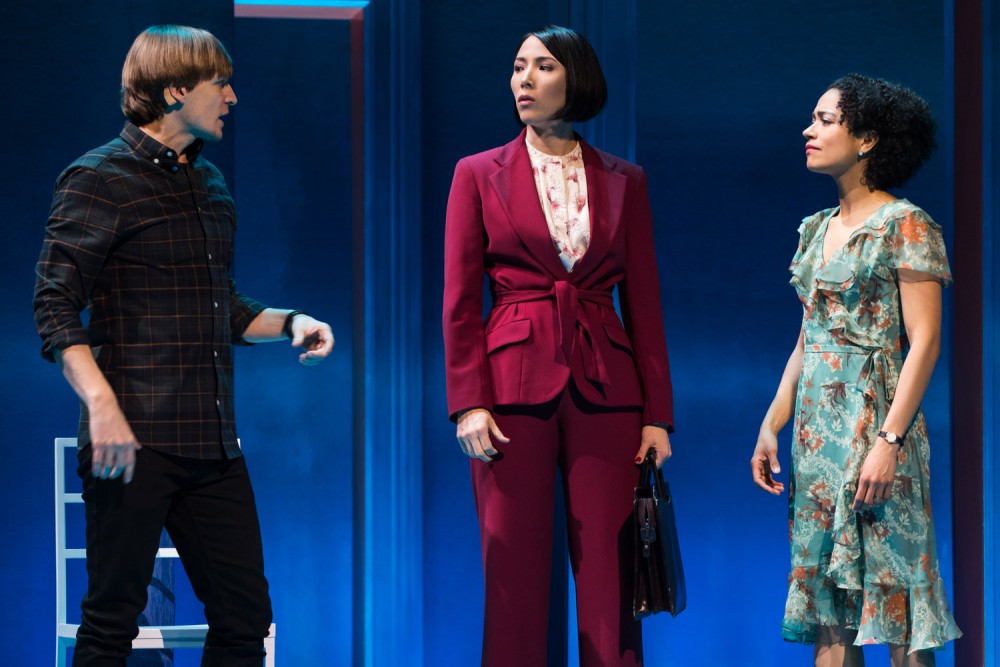

John McGinty, Julee Cerda, Lauren Ridloff
Rounding out the cast is the fun, and light-while-being-dramatic performance by Anthony Edwards (“Grey’s Anatomy”) as school headmaster Mr. Franklin. Kecia Lewis as Mrs. Norman, Sarah’s mother, is a layered character. Not just angry and resentful for having a daughter first diagnosed as “retarded,” when it wasn’t understood that she was merely completely deaf, but also wanting to care for and have a relationship with her daughter, despite not having the tools to do so. And Treshelle Edmond, as naughty-but-innocent student Lydia, keeps the audience both guessing and laughing.
The problem with producing Children of a Lesser God today is that it’s difficult to imagine the severe of institutional discrimination to which the deaf were subjected up until very recently. The idea of locking them away from society, as was commonly practiced, is as inconceivable as it was real. And while differently-abled individuals, the deaf included, still face all sorts of repression and discrimination, it’s not what it once was. But the play remains riveting and relevant because it also delivers a tender, yet fraught love story which, in the hands of Ridloff and Jackson, is absolutely irresistible.
Children of a Lesser God. Open run at Studio 54 (254 West 54th Street, between Broadway and Eighth Avenue). Two hours, 20 minutes with one intermission. www.chidlrenofalessergodbroadway.com
Photos: Matthew Murphy


